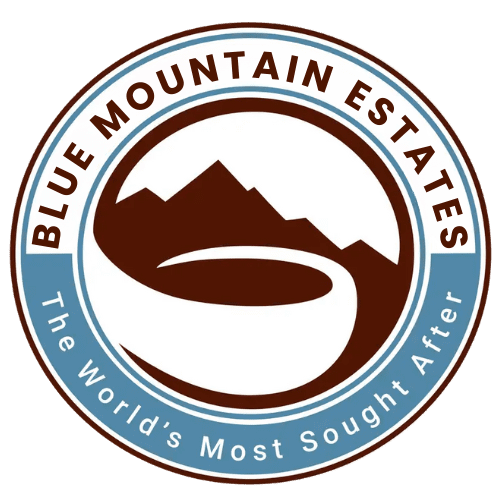If I had a nickel for every time Costa Rican bat feces coffee, a viral sensation valued at nearly $100 a cup, was invoked when talking about the luxury coffee industry, I wouldn’t be in this business.
Specialty coffees are valuable, exclusive, and exquisite in flavor and quality. There is a reason why the best luxury coffees are grown on small farms in protected geographic regions, often produced alongside generational knowledge of its cultivation and exported under meticulous certification standards.
But luxury and specialty coffees don’t have to be inaccessible, exotic, and removed in their branding — or unattainable for luxury coffee businesses and consumers who want to drink the best cups in the world.
In fact, the fourth wave coffee movement is defined by those values, bringing small businesses, small farmers, and transparent, direct trade to the center of the luxury coffee conversation. Most of all, commercial producers are finally making luxury coffee accessible to consumers while protecting the exclusive regions and farmers who steward them.
Third wave coffee, coined in the early 2000s, was defined by the artisanal sensibilities of coffee sellers like Starbucks, who built an empire on branded specialty coffee but scaled an unwieldy, untraceable coffee sourcing structure akin to the commodity sector. These sellers proved that there was a market for specialty coffees, and over the past two decades, the global desire for luxury coffee consumption has skyrocketed.
The irony of the bat coffee viral sensation is that the answer to the inevitable question “Would somebody actually buy this?” is a resounding yes. Specialty coffee is a defining characteristic of consumption trends around the world, and innovative business models in the fourth wave market are changing the industry for coffee buyers and sellers of all kinds.
Looking to the Caribbean
What’s happening in Jamaica is a perfect example of renewal and restoration for coffee farmers who grow one of the most valued luxury coffees in the world.
Jamaican Blue Mountain coffee is among the most sought-after specialty brews, sold for easily $100 per pound at market. Grown over an extended season in the island’s misty eastern mountains and vigorously protected by strict certification standards, certified Blue Mountain coffee yields among the most rich and exquisite coffee drinking experiences anyone could buy.
For decades, inequitable market dynamics on the island have staggered production, denied investment to small farmers, and kept the market concentrated. And for years, Jamaican Blue Mountain coffee has been inaccessible for roasters, traders, and coffee companies whose desire for Blue Mountain coffee has never waned.
Dominant island processors have taken advantage of reliant smallholders and paid diminutive farmgate prices for cherries, exacerbating low production and limited investment in generational family farms. By doing so, controlling Jamaican processors have damaged their own ability to guarantee a stable supply of coffee, weakened their reputation with buyers around the world, and raised prices.
While the specialty coffee industry brought sustainability, fair trade, and economic justice to single estates and small farms elsewhere — prizing authenticity, quality, freshness, and transparency — Jamaica remained unfortunately untouched.
But there is a new tide on the island.
Integrated commercial producers and processors are renewing the industry, increasing production and giving back to small farms.
Blue Mountain Best is a perfect example of this model. Using a syndicated investment strategy to begin operations on over 550 acres of certified Blue Mountain land, Blue Mountain Best employs updated agricultural methods to increase production dramatically. Where Blue Mountain farmers have struggled to produce 30 boxes of unprocessed coffee cherry per acre in recent years, Blue Mountain Best expects to exceed 80 boxes relatively.
Most importantly, a producer and processor of this size is able to sustain a large network of outgrower family farms, supplying proper investment and extension services for struggling smallholders. Blue Mountain Best, for example, is partnered with over 1,000 small farms and committed to paying farmgate prices at least twice the amount demanded by dominating processing companies.
What Does This Mean for Coffee Buyers and Sellers of Luxury Coffee?
In short, the entrance of responsible, modern, and equitable commercial producers in exclusive regions is opening up luxury coffee to the global market.
On a syndication model, a grower can guarantee direct trade with specialty companies of all varieties, ensuring traceability, sustainability, and fair labor practices.
Integration means coffee companies are able to develop private label products while maintaining a direct stake in a responsible grower. And new businesses and importers are able to enter a historic and exclusive market like Jamaica’s to ferry Blue Mountain coffee to luxury consumers around the world.
We’ve already seen models like ours shift the luxury coffee landscape dramatically, particularly for grocery stores and food chains, who develop product lines of single-estate coffee or create blends with luxury beans in order to market more economical products.
Similar trends are skyrocketing in the subscription sector, with roasters and distributors developing luxury coffee roasts in response to an exponential increase in at-home coffee consumption.
Partnered with community farms, fourth wave coffee producers are ensuring luxury coffee consumption is viable on a large scale. And no one benefits more from these changes than small farmers, who’ve been denied a meaningful connection to the market for decades.
That’s why we’re in this business, anyway.

Share the Post:



